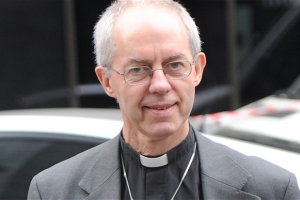Social media outlets such as Facebook and Twitter are destroying quiet reflection, the Archbishop of Canterbury has warned.
The Most Rev Justin Welby, speaking to an audience of 700 MPs, peers, church and charity representatives at the National Parliamentary Prayer Breakfast in Westminster, stated that instant reaction has rapidly replaced "reflective comment" in an era in which angry remarks can be spread to "the far corners of the Earth" within seconds, the Daily Mail reports.
"The comments that even 20 years ago took months to reach the far corners of the Earth, now, as we know, take seconds,' he said. 'The best answer to a complex issue is not always given in 140 characters."
'The Church of this century must be a generous Church because of that communications revolution, because of technology, because we are face to face with everyone everywhere always, in a way we never have been in history," he continued.
The archbishop isn't alone in warning individuals to be careful in how-- and how frequently-- they use social media.
The Washington Post reports that in a study of 70 million posts on Sina Weibo, China's version of Twitter, a team at Beihang University tracked the spread of joy, sadness, anger and disgust across the social network. According to the MIT Technology Review, they found that angry tweets were far more likely to be retweeted by others - or be the subject of angry responses - up to three degrees away from the original user.
The study concluded that Twitter is "steadily making us less happy and more angry."
In addition, the Wall Street Journal reports that in 2009, the journal Science published an overview of studies about the effect of new media on our cognitive abilities. They found that while the Internet can increase "visual literacy skills," that increase appears to be offset with decreases in other areas, such as critical thinking, inductive problem solving, imagination, and "abstract vocabulary."
"Social media can be so dangerous because it does emotionally and cognitively influence users," says Dr. William Adkers, a professor of communications.
"Whatever the outlet, Facebook, Twitter, email-they all need to be used very carefully, and that's something the younger generation doesn't seem to understand. You get this dangerous combination of emotion and instant access to posting, often leading to unwise comments. All those [social media] outlets can such good things; but, they can also be so detrimental to the individual."
On his part, the archbishop encourages internet users to "spread joy."
The Catholic Church is encouraging Christian internet users to use social media to spread joy and the gospel of Christ instead of negativity.
Archbishop Eamon Martin, the future Primate of All Ireland, urged Catholics to use "digital smiles" and avoid "preachiness" in their online communications but also suggested they should find ways to "pray in the digital world".

















